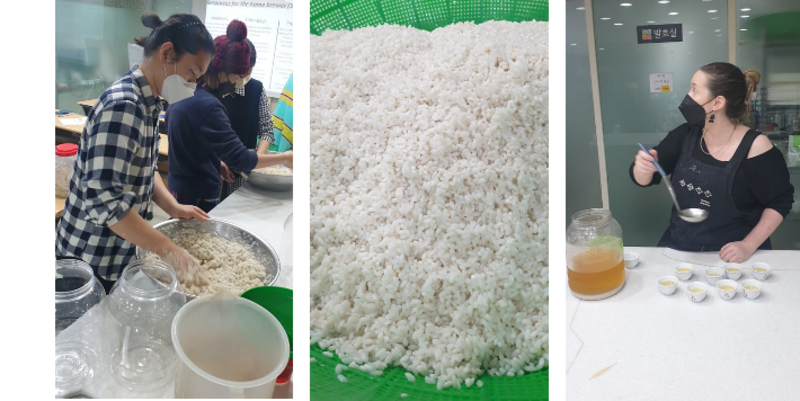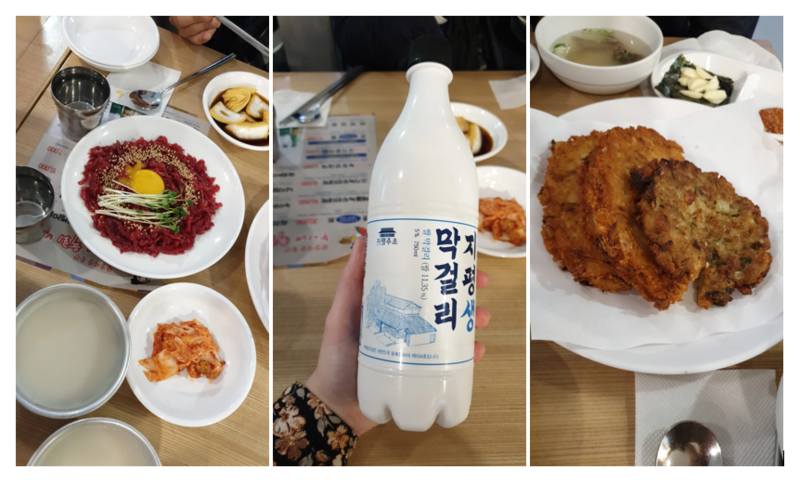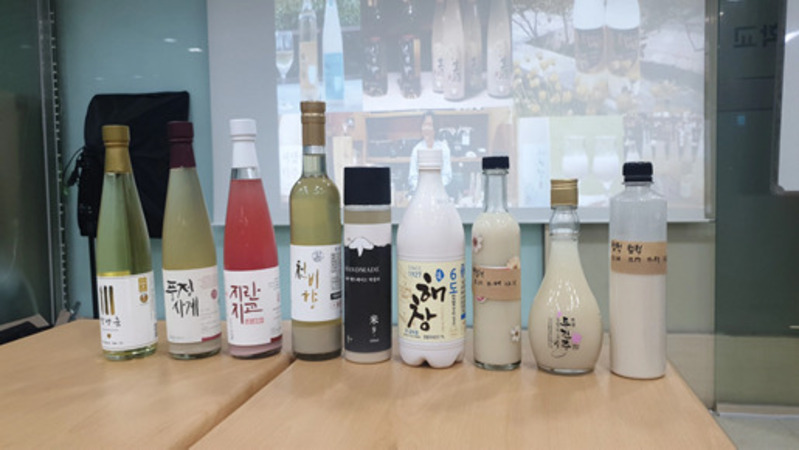- 한국어
- English
- 日本語
- 中文
- العربية
- Español
- Français
- Deutsch
- Pусский
- Tiếng Việt
- Indonesian
By Honorary Reporter Kate Kalinova from Australia
Photos = Kate Kalinova
Sul is the Korean word for "alcohol" and includes distilled and fermented types. Booze in Korea is often rice based but also traditionally made with nuruk, a fermentation starter usually made from wheat, rice and barley.
As part of introductory brewing classes hosted by the brewing school Susubori Academy in Seoul, Julia Mellor, an Australian sul expert and entrepreneur based in Korea, taught the history of alcohol in Korea and introduced several basic brewing recipes. Among her tasks are advising aspiring brewers on opening sul breweries abroad, running brewing classes and holding tasting tours in Korea.

Susubori Academy in Seoul holds brewing classes for both Koreans and foreign visitors.
"Making makgeolli (milky rice wine) is surprisingly easy and it's a wonderful hobby. It's so satisfying to turn rice into delicious alcohol that you can share with family and friends," she said.
Most Korean households used to hand their sul recipes down through generations, and alcohol was made at home on a small scale. Today, one can start brewing at home with a rice steamer, sizable fridge and jars to hold the fermenting brews.

Makgeolli goes great with a variety of Korean foods like (left) yukhoe (seasoned raw beef) and (right) pajeon (traditional pancakes).
My first encounter with makgeolli was through Koreatowns abroad, where I fell in love with a fruit-blended version in eye-catching copper teapots along with pajeon (seafood pancake). Drinking the wine with friends at a Korean restaurant filled with images of K-drama stars and K-pop songs playing in the background made us feel like we were in Korea.
After arriving in Korea, however, I discovered more traditions such as eating pajeon with makgeolli on a rainy day or after hiking. But the introductory brewing classes at Susubori opened my eyes to a new world of traditional Korean alcohol.

Traditional Korean alcohol has gained immense popularity over the last few years.
Mellor said trendy sul bars and restaurants are becoming more popular with the younger generation, leading to a rise in artisan breweries and high-end restaurants offering curated sul pairings.
"Korean alcohol continues to go from strength to strength, and we've seen exponential growth (in traditional drinks) over the last five years. We have so many new breweries, exciting bars and innovative dining experiences centered around sul," she said.
enny0611@korea.kr
*This article is written by a Korea.net Honorary Reporter. Our group of Honorary Reporters are from all around the world, and they share with Korea.net their love and passion for all things Korean.